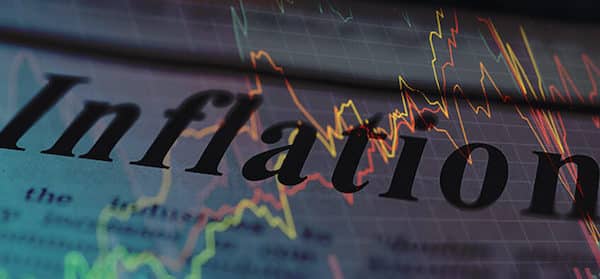
According to Morgan Stanley, Global economic growth is expected to slow down to an average of 2.9% this year (and 2.5% by the last quarter of the year). This slowdown is mainly because the U.S. economy is losing momentum, which affects other countries too.
The global economy is facing a lot of challenges with opportunities. In many countries, inflation is still a concern. Not only this, we have seen the job market showing both resilience and transformation. Technology has also undergone rapid advancements.
What is happening all around the world? Let’s discuss in this article.
Job Market Trends in Mid-2025
The total number of jobs worldwide is expected to grow by 2030; however, significant gaps are anticipated between the skills people possess and the skills required for new jobs. The main skills that will separate growing jobs from disappearing ones are things like:
- Being able to adapt
- Stay strong under pressure
- Managing resources well
- Quality control
- Programming
- Knowing how to use new technologies
Because these skill needs are changing so fast, a lot of people will need training. Out of these, employers think:
- 29 people can learn new skills to stay in their current jobs.
- 19 people can be trained and moved to other roles in the same company.
- But 11 people probably won’t get the training they need, putting their jobs at risk.
According to the Future of Jobs Survey, skill gaps are seen as the biggest challenge to business progress; 63% of employers said this is a major problem between 2025 and 2030. Because of this:
- 85% of employers plan to focus on training their workers.
- 70% expect to hire people who already have new skills.
- 40% plan to cut jobs where skills are becoming outdated.
- 50% plan to move people from shrinking jobs into growing ones.
Impact of Inflation on Consumer Behavior

People are worried about high prices and inflation UK, US, Canada, and they still feel less confident than they did in early 2020. But even with this uncertainty, they are still spending money.
Let’s take a look at consumer behaviour.
- Gen Z Behaviour Of Spending
In 2025, the average 25-year-old Gen Z adult earns about $40,000, which is much more than older generations did at the same age. Their spending is growing fast and is expected to surpass baby boomers by 2029, adding $8.9 trillion to the global economy by 2035.
They are also more optimistic about social issues, but many are worried about inflation and their financial future, especially in the U.S., U.K., and Germany.
Even with money concerns, Gen Z continues to spend. Many don’t have enough savings to cover one month of expenses, yet they still shop, often using buy-now-pay-later services or credit.
- Digital Platforms Are Popular, But Not Always Trusted
People use social media a lot, but don’t trust it much for shopping advice. Instead, they rely more on family, friends, and online reviews, especially in the US and Europe. In China, people trust these sources too, but social media has more influence there.
Different products bring different levels of trust. For example, in the US, many trust influencers for travel tips, but not as much for everyday items like snacks.
U.S. Growth and Inflation
According to a report, the U.S. economy grew by 2.8% in 2024, but growth is expected to slow down to 1.5% in 2025 and 1% in 2026. The trade tariffs, immigration restrictions, and uncertain policies are making it harder for the economy to grow.
Inflation will probably increase and hit a peak of 3%–3.5% in late 2025 because companies will pass higher costs on to customers. Limits on immigration could also cause worker shortages, especially in services, which would push wages and prices up.
In 2026, inflation should start to slow down as people and businesses spend less.
Technology and Jobs
In 2025, technology has prevailed and job markt in tech eas good. Some of the fastest-growing jobs are in security. For example, Security Management Specialists are among the top five fastest-growing roles. This growth is partly because of new technology but also because of more conflicts and tensions between countries. For the same reasons, Information Security Analysts are also in the top 15 fastest-growing jobs.
Green and clean energy jobs are also growing quickly. These include:
- Electric and self-driving vehicle specialists
- Environmental engineers
- Renewable energy engineers
These jobs are expanding because countries are investing more money to fight climate change and reduce carbon emissions. Also, more companies are using new ways to create, store, and share energy, which adds to this growth.
On the other hand, some jobs are declining fast, especially clerical and administrative roles like:
- Cashiers
- Ticket clerks
- Administrative assistants
- Executive secretaries
- Printing workers
- Accountants and auditors
These jobs are shrinking because of:
- More people have access to digital tools
- The rise of AI and automation
- Robots doing routine tasks
Other reasons include an aging population, fewer working-age people, and slower economic growth in many countries.
Conclusion
The global economic outlook for mid-2025 is one of transition. Slowing growth, persistent inflation, labor realignment, and rapid tech acceleration are all reshaping the economic landscape. The U.S. slowdown, skill mismatches, and inflationary pressure are top concerns, but they also present opportunities.
To remain competitive, governments must invest in education and upskilling, while businesses should embrace innovation responsibly and adapt to the values and habits of Gen Z consumers.
What do you think of this economic forecast 2025? Did you like this blog? Tell us in the comments below.
FAQs
Q1: What to expect from the global economy in 2025?
Ans: The growth is being cut in nearly 70% of all economies, across all regions and income groups. Global growth is projected to slow to 2.3 percent in 2025.
Q2: What is the Economist Global Outlook 2025?
Ans: The global economy is forecast to grow 2.7% in 2025, with strong US performance offset by weaker momentum in Europe and China.




